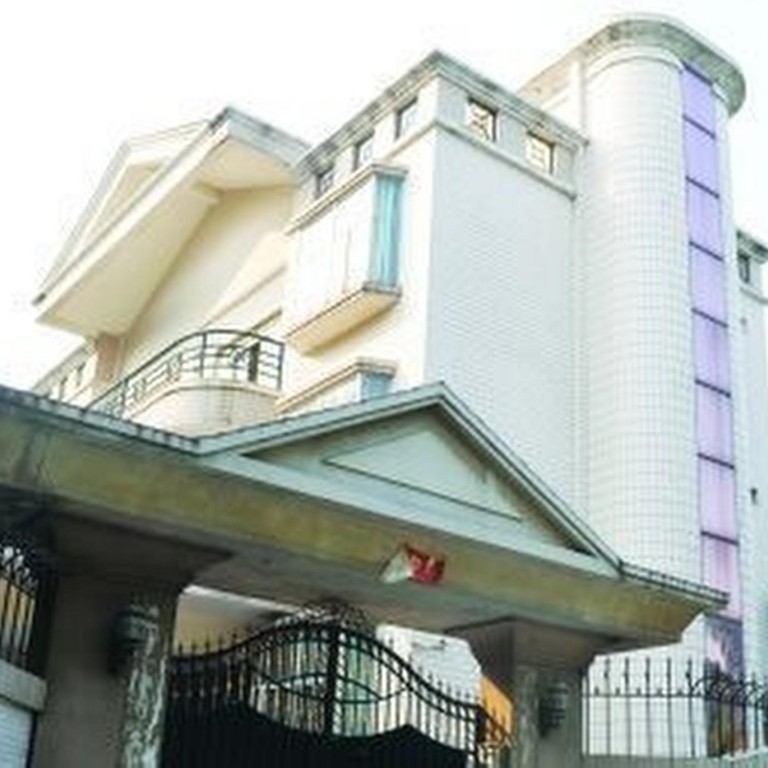
Graft probes of cadres shed light on loopholes and lax oversight
Graft probes shed light on the public mistrust of officials as internet users reveal the multimillion-yuan secret life of luxury cadres attempt to hide
Corruption investigations of Guangdong officials in recent weeks have cast a light on loopholes and poor oversight involving the disclosure of assets, as well as highlighting the poor standing of authorities in the public eye.
The latest disgraced official to be placed under party investigation, on Monday, was the political commissar of the urban management bureau in Guangzhou's Panyu district - two weeks after internet users found that he owned 22 properties valued at more than 35.5 million yuan (HK$43.65 million), according to a report in .
Cai Bin allegedly took bribes and illegally operated a private business since 2000, as Panyu's deputy police bureau chief and as urban management commissar.
Despite his 10,000-yuan-a- month salary as a political commissar, Cai and his wife and son were found to own nearly 7,000 square metres of property - a luxury villa, six flats, nine shops, two factories and four parking spaces - in Guangzhou's Panyu and Nansha districts. One of his 500-square-metre flats reportedly cost 10 million yuan.
Internet users nicknamed him "Uncle Apartment", or , after the scandal was exposed.
In an obvious attempt by the 56-year-old official to hide the properties, all but two apartments were placed under the names of his wife and son. Authorities reportedly have not investigated his wife, Shi Liying , a retired official with Panyu's Federation of Industry and Commerce, or his son, Cai Zhanpei , who emigrated to Australia.
It should not take anti-corruption officials 12 years to find out that a cadre owns 22 properties . And if the watchdog could miss that, it seems highly likely that it would find more problematic officials if the local land and resources bureau was asked to provide its investigators access to the database of registered owners.
The scandal also shows there is a major loophole in the property declaration system involving mainland officials, as the urban management bureau was quoted by media as saying that the political commissar declared only the two apartments that were under his name.
Sadly, Cai is not the only cadre who was recently caught living a secret life of luxury. Just a few days after the Panyu political commissar scandal broke earlier this month, a party boss of Dongguan's Zhongtang village was also placed under investigation after angry internet users revealed that he owned a luxury villa in a 7,000-square-metre compound.
Chen Yaogen was found to have been living since 2008 in the three-storey villa - featuring a fish pond, swimming pool, basketball court, artificial waterfall, landscaped grounds and even a moat - reported. He allegedly employed five domestic workers - a cleaner, chef, a doorman, gardener and laundry worker - at the villa.
And the public now wants to know whether the land used to build the compound was illegally obtained through his power. Again, Dongguan's party disciplinary body apparently turned a blind eye to the party boss' huge compound for four years.
Amid widespread corruption scandals involving many of the province's party cadres, Guangdong's deputy governor, Chen Yunxian , made a series of interviews and public appearances early this month to dispel rumours that he had defected to the US to avoid a corruption probe.
The vice-governor found himself thrust into the spotlight after disgraced billionaire Gu Chujun emerged from a seven-year prison stint to accuse Chen Yunxian and three other high-ranking officials of graft and of trumping up charges to frame him.
In a lengthy interview with the and in a speech given to students at the Guangdong University of Foreign Studies, Chen, who had dropped out of the public eye for more than a month, said he had been sent by Beijing to Yale University to study what Washington had done to repair the country's financial system.
In late August, former Guangzhou party chief Zhang Guangning was also forced to make a public appearance after rumours circulated widely online that he had been placed under investigation because of profits he supposedly made during the Asian Games two years ago, and that he had killed himself by jumping out of window.
Mo Shaoping , a prominent human rights lawyer and dissident, said the high-profile appearances that were needed to dispel rumours about Chen and Zhang's disappearances were indicative of the poor standing of Communist Party officials among the public.
"Most of the public has lost confidence in communist cadres, and people believe any kind of rumours about them," Mo said.
"The public doesn't believe any cadre in the system has a clean record."

